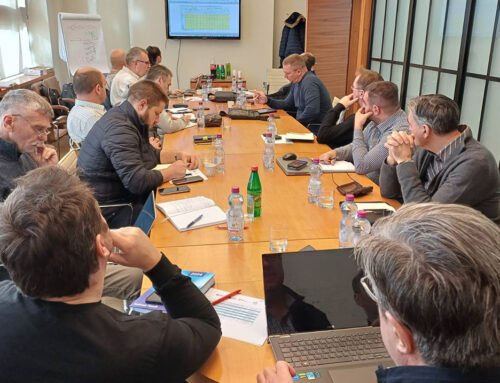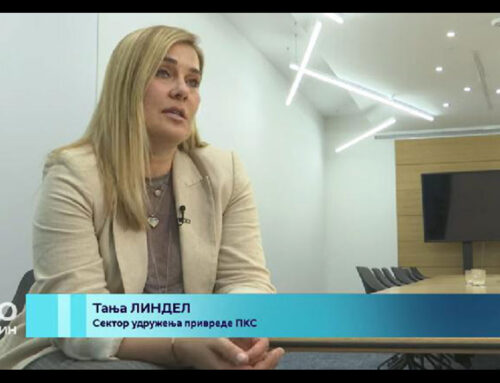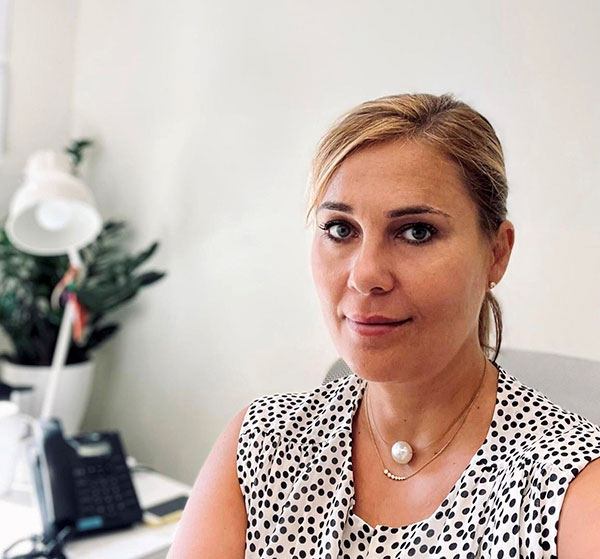Gathering – „What does the German Supply Chain Due Diligence Act mean for our companies?“

Belgrade | June 22, 2023
Center for Democracy - Gathering "What does the German Supply Chain Due Diligence Act mean for our companies?"
At the gathering entitled "What does the German Law on Due Diligence in the Supply Chain mean for our companies?", information from the Serbian Chamber of Commerce (PKS) was presented that currently around 2,800 companies from Serbia export to Germany.
Germany passed the Law on Due Diligence in the Supply Chain, which means that suppliers from Serbia will also have to meet the requirements for the protection of human and labor rights, as well as meeting the ecological criteria of production and transport.
The law there has been in force since January of this year, and German companies with more than 3,000 employees require their direct and indirect suppliers to apply a series of rules.
Starting next year, the application of the law is expected to be extended to all German companies with more than 1,000 employees.
Parts of the supply chain will have to meet, among other things, standards regarding polluting substances, the use of mercury and the transboundary movement of waste and its disposal.
With the introduction of new regulations in Germany and other European countries, environmental regulations in production and transport should gain importance.
Johanna Wohlmeyer from the German Organization for International Cooperation (GIZ) says that the law essentially does not introduce so many novelties and that the principles of the law are based on the principles of business and human rights already defined by the United Nations.
"What is new is that they have now become legally binding," Vollmeyer says.
Also, she adds that companies now need to change their perception of risk.
"In this case, the risk is not understood as a risk to the company, as a financial risk, the risk of losing a client or the risk of putting the wrong product on the market. Now it's a risk to the people who make the products you supply," Vollmeyer says.
Companies must clearly define risks, document them and prioritize them.
"You can't expect companies to immediately fix all the risks they identify," Vollmeyer says.
He also says that the law is very clear about what "due diligence" refers to and identifies nine steps that need to be met.
These steps range from the appointment of a responsible person in a company to the publication of human rights rules, as well as the preparation of a risk analysis.
Svetlana Budimčević from the Union of Employers of Serbia says that applying the German law is a way for real values to get their price and for the economy to deal with unfair competition.
"Companies that want to stay in one market care about their image. "It is clear to employers that there is no labor productivity if there is no dignified work," she says.
He also adds that this way of doing business has already been promoted at the level of socially responsible business, but it is new for employers that transparent and accessible procedures must be introduced.
The law stipulates that everyone can report if they have knowledge that in a company that is a supplier or in the supply chain of a German company, regulations related to human rights or environmental standards are not being followed.
"The law stipulates that the German company is obliged to establish a complaint system so that every employee of the German company, every employee in the supply chain or every third person who has knowledge of a violation of human rights or a negative impact on the environment has the right to that mechanism addressed to the German company that is directly responsible for all that. "German companies will be obliged to publish contacts publicly either in their company or an anonymous lawyer or agency that will take care of it," says Lindel.
The law also stipulates that the German company is obliged to check the situation after receiving information and inform the person who filed the complaint.
Complaint mechanisms are a type of channel where workers and the public are allowed to submit complaints to the company's management in a safe way, without any retaliation, very often and anonymously, explains Jovana Spajić Erdeljan from the International Labor Organization.
"We are working on a project, in cooperation with GIZ, to ensure adequate complaint mechanisms for workers in three targeted industries in Serbia, which we considered to be the most representative. These are the automotive, textile and electrical industries," she says.
The new German law could eliminate problems in the application of domestic laws and the lack of response of state institutions, says Aleksandar Todić from the United City Trade Unions (UGS) Nezavisnost.
"It is not possible for one Jura company to turn a deaf ear to free trade union organizing, to make some of its own employee councils, and for the state not to react, and for years to hear that human rights are being violated there, and no one reacts," says Todić.
He stated that just as employers have their own office at the PKS where they can get answers regarding the application of German law, so employees should have "someone they can turn to when it comes to their rights" regarding with the new regulation.
"German trade unions with their partner organizations in Serbia could perhaps open their office and authorize some authorized person who could collect complaints from the trade union and deliver them to the company." "Especially if we bear in mind that employee councils in German companies have the right to review complaints and appeals," says Todić.
Germany is very committed to the implementation of this law and will not give up on it, said the head of the department for labor and social affairs at the German Embassy in Serbia, Peer Krumrey.
He adds that the issue of implementing this law is an international issue, not just a national issue of Germany.




